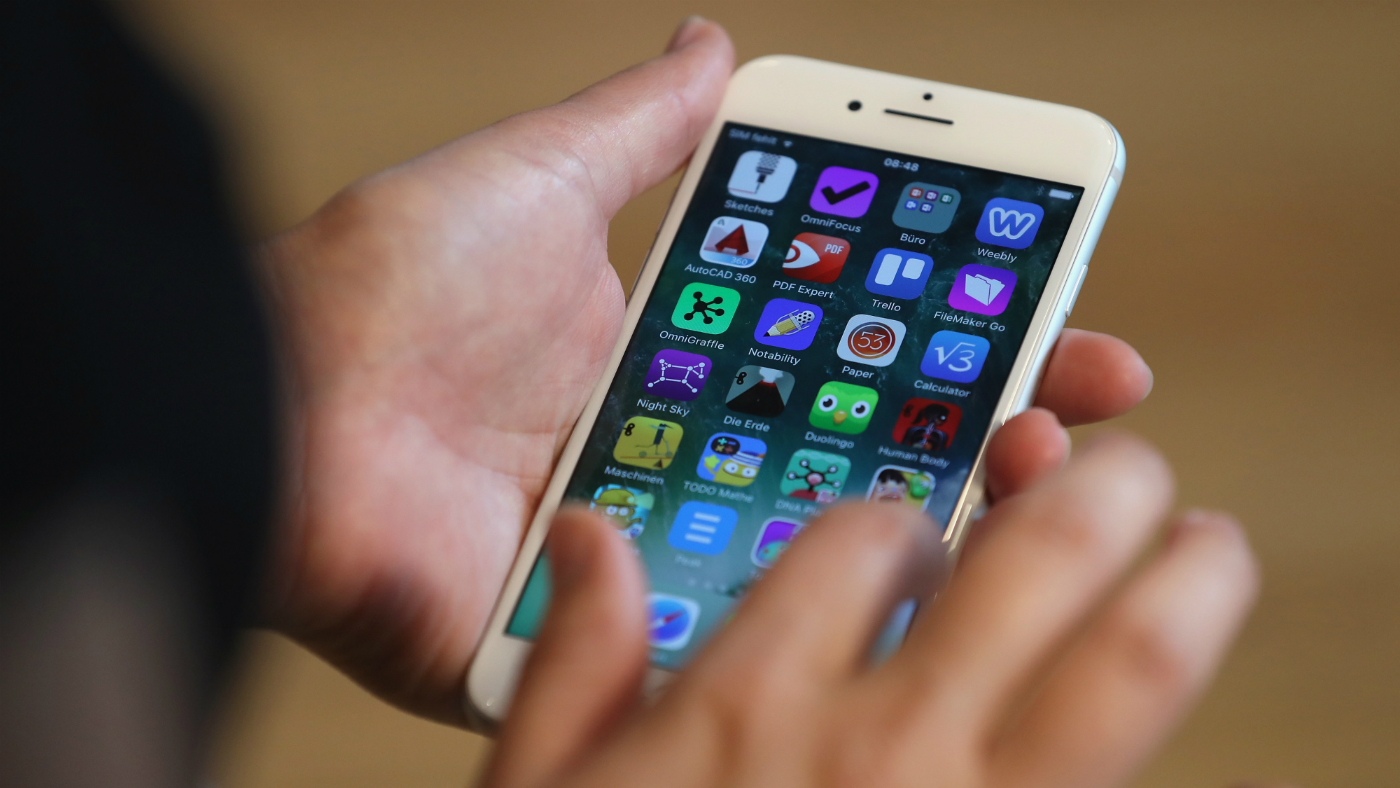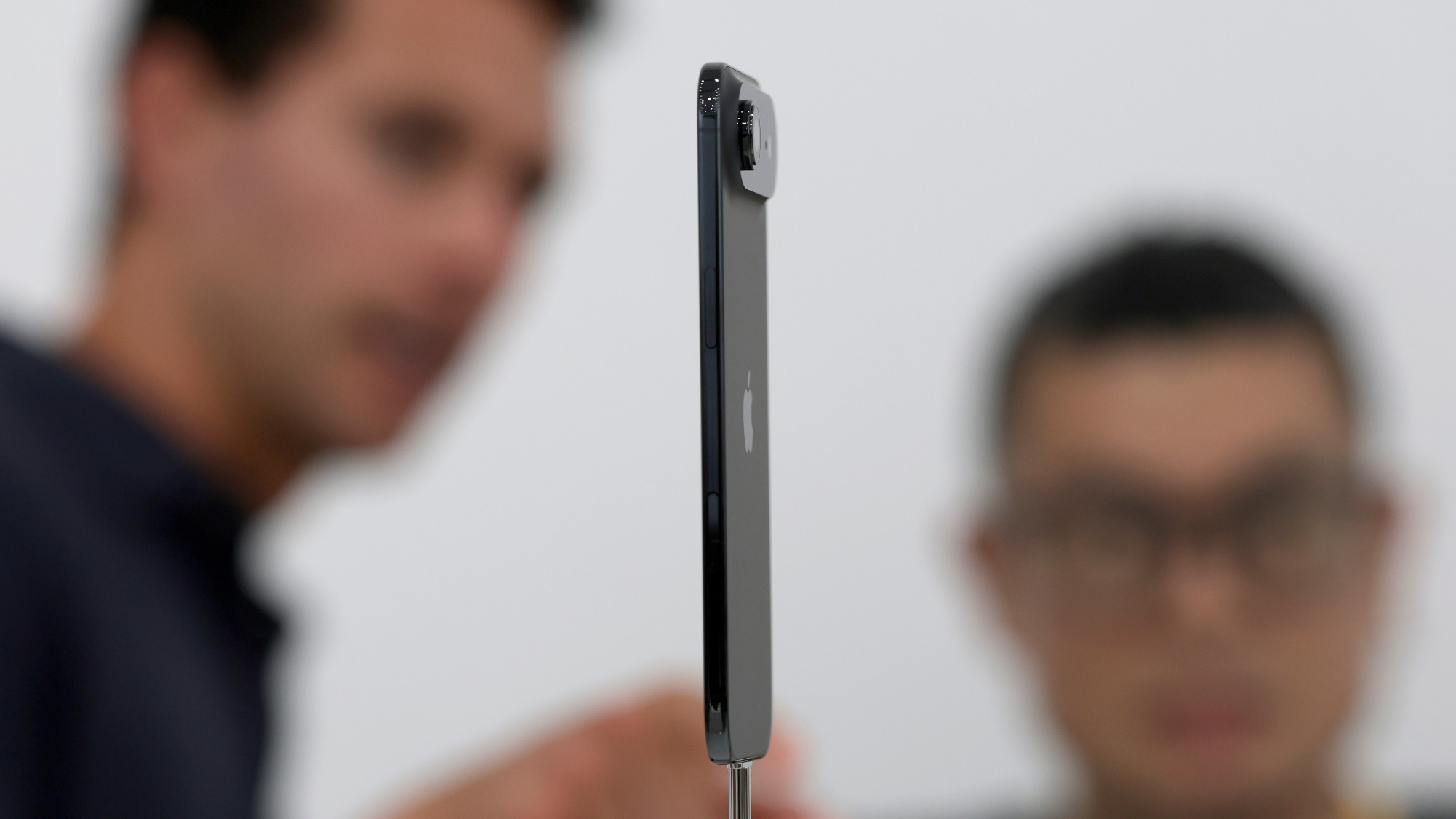How iPhone bug may allow hackers to access users’ data
Experts say cybercriminals could have been exploiting flaw in in-built email app since 2018

A free daily email with the biggest news stories of the day – and the best features from TheWeek.com
You are now subscribed
Your newsletter sign-up was successful
A security flaw in Apple’s mobile operating system allows hackers to install software on iPhones without getting the victim to download an attachment or click on any links, according to new research.
Cybersecurity experts say hackers may have been exploiting the as-yet unfixed bug in the iPhone’s Mail app since January 2018, The Times reports.
What are the hackers doing?
The Week
Escape your echo chamber. Get the facts behind the news, plus analysis from multiple perspectives.

Sign up for The Week's Free Newsletters
From our morning news briefing to a weekly Good News Newsletter, get the best of The Week delivered directly to your inbox.
From our morning news briefing to a weekly Good News Newsletter, get the best of The Week delivered directly to your inbox.
Typically, “an attack on a phone requires a user to download the malware”, usually by clicking on a link in a message or on an attachment sent by the hackers, explains The Times.
“Yet in this case, hackers send a blank email to the user. When the email is opened, a bug is triggered that causes the Mail app to crash, forcing the user to reboot it,” says the newspaper.
During the reboot, hackers can reportedly access information on the device, and remotely modify or delete emails.
How was it discovered?
A free daily email with the biggest news stories of the day – and the best features from TheWeek.com
The bug was discovered by San Francisco-based cybersecurity firm ZecOps, after researchers found suspicious lines of code on iPhones belonging to a client, The Washington Post reports.
Zuk Avraham, the company’s chief executive, told the newspaper that following months of investigations, his team realised that the code was connected to a previously unknown flaw in Apple’s email app.
ZecOps alerted Apple in March about the issue, he said.
Apple has since confirmed that a fix will be included in upcoming software updates, Reuters reports.
In a statement, the California-based tech giant said: “We have thoroughly investigated the researcher’s report, and based on the information provided, have concluded these issues do not pose an immediate risk to our users.
“The researcher identified three issues in Mail, but alone they are insufficient to bypass iPhone and iPad security protections, and we have found no evidence they were used against customers.”
–––––––––––––––––––––––––––––––For a round-up of the most important stories from around the world - and a concise, refreshing and balanced take on the week’s news agenda - try The Week magazine. Start your trial subscription today –––––––––––––––––––––––––––––––
Could your iPhone have been hacked?
In a blog post explaining the research findings, ZecOps said that the firm’s experts had “high confidence” that the flaws may have been used in attacks conducted by “an advanced threat operator”.
However, most users probably have nothing to worry about.
The company added that “it had found evidence that the bug was used to attack well-known targets including individuals from a Fortune 500 company in North America, an executive from a mobile carrier in Japan, employees of technology companies in Saudi Arabia and Israel, a European journalist and an individual in Germany”, the BBC reports.
ZecOps did not disclose the identities of these alleged victims.
-
 The environmental cost of GLP-1s
The environmental cost of GLP-1sThe explainer Producing the drugs is a dirty process
-
 Greenland’s capital becomes ground zero for the country’s diplomatic straits
Greenland’s capital becomes ground zero for the country’s diplomatic straitsIN THE SPOTLIGHT A flurry of new consular activity in Nuuk shows how important Greenland has become to Europeans’ anxiety about American imperialism
-
 ‘This is something that happens all too often’
‘This is something that happens all too often’Instant Opinion Opinion, comment and editorials of the day
-
 Will AI kill the smartphone?
Will AI kill the smartphone?In The Spotlight OpenAI and Meta want to unseat the ‘Lennon and McCartney’ of the gadget era
-
 Is Apple’s Tim Cook about to retire?
Is Apple’s Tim Cook about to retire?Today's Big Question A departure could come early next year
-
 iPhone Air: Thinness comes at a high price
iPhone Air: Thinness comes at a high priceFeature Apple’s new iPhone is its thinnest yet but is it worth the higher price and weaker battery life?
-
 Is Apple breaking up with Google?
Is Apple breaking up with Google?Today's Big Question Google is the default search engine in the Safari browser. The emergence of artificial intelligence could change that.
-
 Why won't Apple make iPhones in America?
Why won't Apple make iPhones in America?Today's Big Question Trump offers a reprieve on tariffs, for now
-
 Not there yet: The frustrations of the pocket AI
Not there yet: The frustrations of the pocket AIFeature Apple rushes to roll out its ‘Apple Intelligence’ features but fails to deliver on promises
-
 Space-age living: The race for robot servants
Space-age living: The race for robot servantsFeature Meta and Apple compete to bring humanoid robots to market
-
 Apple pledges $500B in US spending over 4 years
Apple pledges $500B in US spending over 4 yearsSpeed Read This is a win for Trump, who has pushed to move manufacturing back to the US